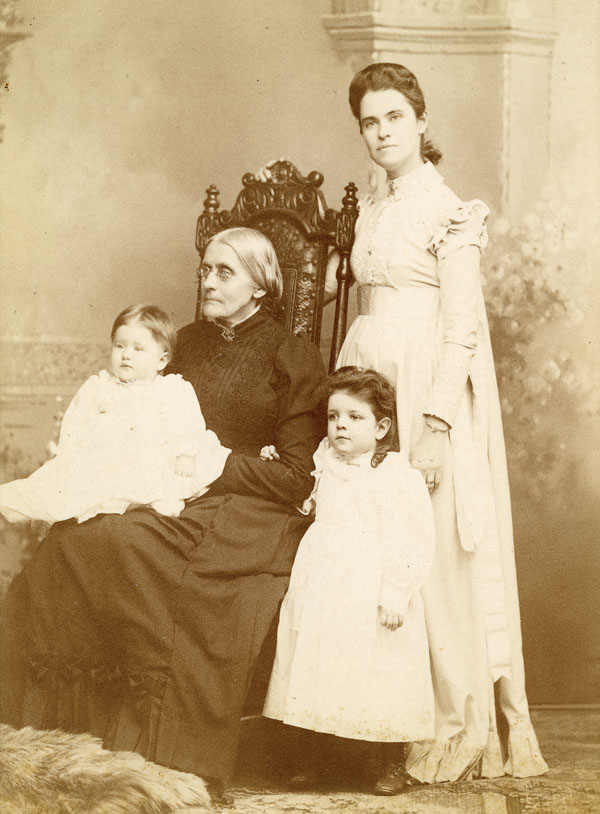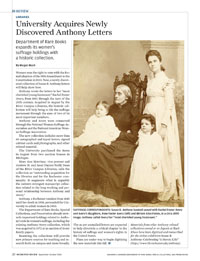In Review
 SUFFRAGE CORRESPONDENTS: Susan B. Anthony (seated) posed with Rachel Foster Avery and Avery’s daughters, Rose Foster Avery (left) and Miriam Alice Foster, in a circa 1890 image. Anthony called Avery her “most cherished young lieutenant.” (Photo: University Libraries/Department of Rare Books, Special Collections, and Preservation)
SUFFRAGE CORRESPONDENTS: Susan B. Anthony (seated) posed with Rachel Foster Avery and Avery’s daughters, Rose Foster Avery (left) and Miriam Alice Foster, in a circa 1890 image. Anthony called Avery her “most cherished young lieutenant.” (Photo: University Libraries/Department of Rare Books, Special Collections, and Preservation)Women won the right to vote with the formal adoption of the 19th Amendment to the Constitution in 1920. Now, a newly discovered collection of Susan B. Anthony letters will help show how.
Anthony wrote the letters to her “most cherished young lieutenant,” Rachel Foster Avery, from 1881 through the turn of the 20th century. Acquired in August by the River Campus Libraries, the historic collection will help bring to life the suffrage movement through the eyes of two of its most important members.
Anthony and Avery were connected through the National Woman Suffrage Association and the National American Woman Suffrage Association. The new collection includes more than 60 autographed and typed letters, signed cabinet cards and photographs, and other related material. The University purchased the items in August from two auction houses in Michigan.
Mary Ann Mavrinac, vice provost and Andrew H. and Janet Dayton Neilly Dean of the River Campus Libraries, calls the collection an “outstanding acquisition for the libraries and for the Rochester community. It augments what is arguably the nation’s strongest manuscript collection related to the long working and personal relationship between Anthony and Avery.”
Anthony, a Rochester resident from 1845 until her death in 1906, persuaded the University to admit women in 1900. The Department of Rare Books, Special Collections, and Preservation already stewards important holdings related to Anthony’s role in women’s suffrage, including the existing Anthony-Avery collection, which was acquired in 1972 at an auction of Avery family papers. Reuniting the collections will provide new primary sources for teaching and research both on campus and more broadly. The as-yet unstudied letters are expected to help chronicle a critical chapter in the history of suffrage and women’s rights in the United States.
Plans are under way to begin digitizing the new materials this fall.
Materials from other Anthony-related collections owned or on deposit at Rush Rhees have been digitized and transcribed for the online exhibition Susan B. Anthony: Celebrating “A Heroic Life.”

